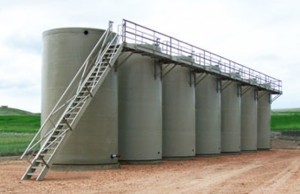Executives at top oil and gas companies in the Bakken are fighting back against North Dakota regulators, opposing the treatment of Bakken crude before it shipped via rail, according to the Wall Street Journal (WSJ). On Tuesday, the North Dakota Industrial Commission (NDIC) heard testimony from oil executives, who claim Bakken oil is sufficiently treated at the well site. The paper first reported the NDIC would be holding hearings in August concerning further treatment of Bakken crude, which has been linked to several explosions, resulting from train derailments. Just under 70% of Bakken crude is transported out of North Dakota by rail to coastal refining markets and hubs like Cushing, OK.
Read more: NDIC Considers Bakken Crude Treatment
Critics believe Bakken crude is dangerous, and needs to undergo stabilization. In similar plays like the Eagle Ford Shale in South Texas, crude is routinely stabilized before transport. At the hearing, representatives from the Dakota Resource Council, a nonprofit environmental group, asked for a moratorium on drilling permits, according to the paper.
The most appropriate action is probably somewhere between a moratorium on drilling permits and letting industry write its own ticket. As a matter of public safety, a thorough analysis of this issue is not unwarranted, but extreme measures to completely halt new development should be met with total disregard.
An issue not often discussed surrounding this issue is pipelines. North Dakota is woefully behind on its pipeline infrastructure. There are bascially two reasons - economics and regulation. It's cheap to transport oil by rail, and pipelines are expensive to build. For the companies that build pipelines, it can sometimes be difficult to secure commitments, and furthermore, state and federal government regulations have made building pipelines more challenging.
Ultimately, the transport of Bakken crude needs to be viewed from a standpoint of both safety and economics. It seems like common sense, and it would be nice if both the oil companies and the regulatory bodies could get on the same page in this respect.
Read more at wsj.com


